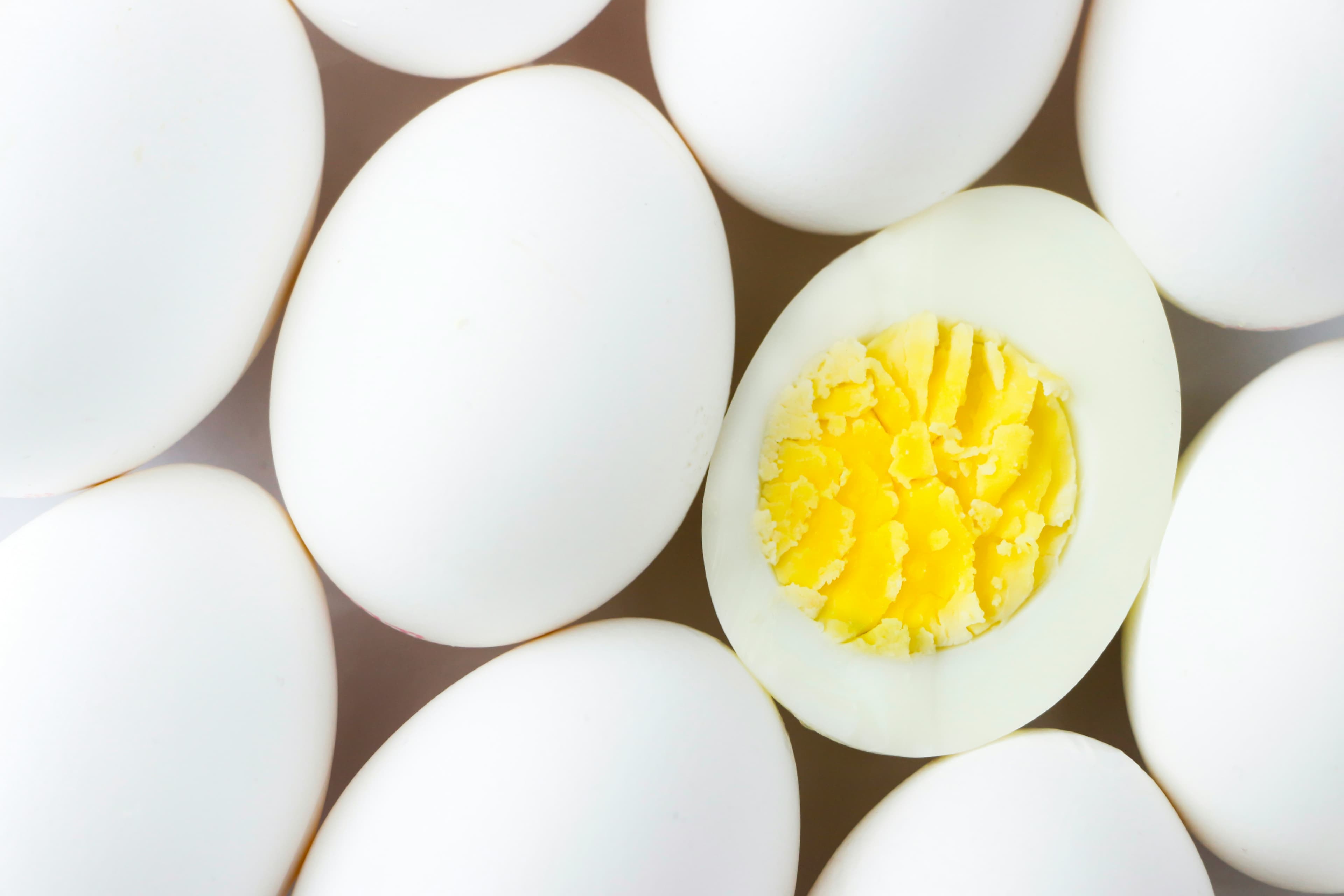If you are considering introducing eggs to your kitty’s diet, you may be wondering, “Can cats eat eggs?” The answer is yes, you can give eggs to your cat. Scrambled or boiled eggs can be a great addition to the cats’ diet as they are packed with protein.
However, it is imperative to understand how many eggs cats can have and the best way to give them. Also, it’s recommended to consult your veterinarian before introducing new food to your cat’s diet. And so, we are diving into the benefits and risks associated with eggs for cats.
Are Eggs Good for Cats?
As cats are obligate carnivores, meaning they need animal protein in their diet, cooked eggs (scrambled or boiled) are a great source of protein and fat and are easily digestible. They also have essential amino acids that help keep your cat’s muscles lean.
However, eggs can’t be the sole dietary source of protein to your cats; you should include eggs as a protein supplement to their overall diet.
In terms of nutrients, egg yolks have more fats and a small amount of protein, whereas egg whites contain only protein. Eggs also have numerous vitamins, including Vitamin A, B12, D, E, Riboflavin, Thiamine, and Biotin. They are also excellent sources of minerals, such as Selenium, Zinc, and Iron.
How Much Egg Can a Cat Eat?
Essentially, cats should have a fully balanced diet because they usually require less food than cats would like. And so, including small amounts (about one tablespoon) of egg whites in your cat’s regular meals can supplement the protein they need to consume. Since eggs are nutritionally incomplete to be a whole meal for your kitty, you can offer scrambled or boiled eggs as a treat with the rest of their meal plan.
What’s the Best Way to Give Your Cat Eggs?
You can give your cats properly cooked (scrambled or boiled) eggs to an internal temperature of 160°F with no salt or seasonings. Also, since cats can have eggs in small amounts, they should not account for more than 10 percent of your feline’s daily calories.
Make sure you cook the eggs because eating raw eggs can cause serious health issues. According to the American Veterinary Medical Association, raw or undercooked eggs harbor bacteria known as salmonella. It can infect both pet parents and their cats, and the symptoms that typically arise are vomiting and diarrhea.
Moreover, egg whites contain an enzyme called avidin that inhibits the absorption of biotin in cats, resulting in vitamin deficiency, which can cause coat and skin problems.
Can Kittens Eat Eggs?
According to PetMD, kittens can eat small amounts of scrambled or boiled eggs. However, eggs should not be their only source of food because kittens need a balanced diet with all the nutrients required for proper nourishment. Also, consult your veterinarian before adding eggs to the kitten’s diet.
Conclusion
Eggs are a great nutritional treat for cats, but not a complete source of nutrients. And so, your cat can survive without eating eggs if you provide them with a balanced diet. However, if your cat wants some of those scrambled eggs you are having, let them have a bite or two only after consulting the veterinarian.
Frequently Asked Questions
Can cats eat eggs? Can cats eat scrambled eggs?
Cats can eat small amounts of scrambled eggs as a protein supplement on top of their regular meals.
Can cats eat boiled eggs?
Cats can have properly cooked hard-boiled eggs as they are a great nutritional treat for cats and are safe to consume.
Can cats eat raw eggs?
No, you must not give raw eggs to your cat because uncooked or undercooked eggs contain bacteria called salmonella, which can cause food poisoning.
Can cats eat egg yolk?
Cats can eat egg yolk in moderate amounts. However, you must be careful about how much your cat should consume egg yolk as it contains a large portion of fat.



